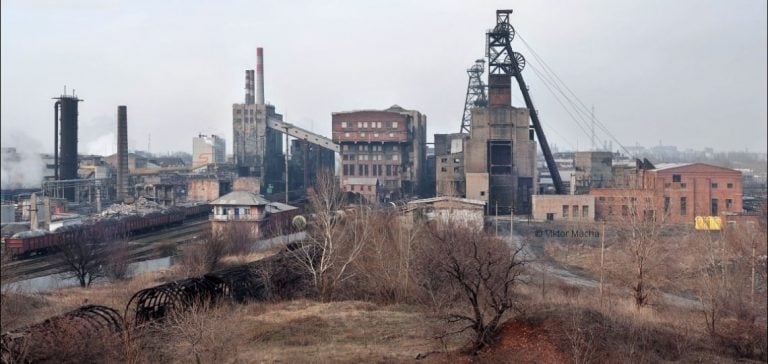At 470 meters underground, Serguiï Faraonov holds black gold in his hand: coal extracted despite the war from a mine in Donbass, in eastern Ukraine. The rock is all the more precious as Russian bombings have ravaged Ukraine’s energy infrastructure for the past two and a half years. Thus, every source of energy is crucial as winter approaches and daily power outages loom.
“Coal is very important,” insists Serguiï Faraonov, head of the production department at the mine, speaking to Agence France-Presse (AFP), proudly stating that his workers are soldiers on “the energy front.” Around him, in narrow galleries, the black-faced miners are active in the dust-laden air. Above their heads, strange black balloons are suspended. They contain water to be poured in case of fire.
The work is physical, exhausting, and dangerous. Oksana Petrenko, in charge of communication at the mine, also explains that while the miners underground are sheltered from bombings, they live with the anxiety of knowing their families are in danger. “It’s hard to stay calm and focused when your children are in danger,” she says.
Strategic Importance of Coal
But the miners “know how to face difficulties,” assures Serguiï Faraonov, 52. And without them, “there will be no light or heating for our Ukraine,” he reminds. Coal accounted for nearly 22% of its total energy supply in 2022, according to the International Energy Agency (IEA). Since then, its importance has only grown as mines have been conquered, destroyed, or forced to close due to fighting.
Additionally, the Russian occupation of the country’s main nuclear power plant in Zaporijjia has deprived Ukraine of one-third of its electricity production. While Kiev aims to develop its renewable energies one day, it must first survive the conflict, thanks in part to its mining industry.
Impact of the Conflict on Mining Infrastructure
Most coal infrastructure is located in Donbass, the mining basin in the east and the number one priority for Russian President Vladimir Putin, even if it means razing entire towns and their industries, such as Avdiïvka, which fell to Russian soldiers in February 2024. Since then, the Kremlin’s army, despite significant losses, has advanced, bombarding towns and villages as well as their industrial and mining sites.
In Serguiï Faraonov’s mine, generators have been installed to allow miners to return to the surface in case of power outages due to strikes. The location of this operational mine is kept secret for security reasons at the request of DTEK, the Ukrainian energy operator. In recent months, the Russian advances in Donbass have forced employees from other mines further east to flee. Some have found positions in M. Faraonov’s mine.
Working Conditions and Labor Shortages
This is the case for Vitaliï Grygortchouk, 44, who has 25 years of coal experience, sporting a bright red helmet and azure blue eyes. He joined the mine on August 21, having left Selydové the day before, a town then threatened and now almost surrounded by Russians. His former mine in Novogrodivka is already occupied. “I only took my winter and autumn clothes with me,” explains Vitaliï, leaving behind his furniture and memories. “You can imagine how hard that is.”
However, he notes that his colleagues who chose to stay “are no longer alive.” Faraonov’s mine has seen about a thousand of its workers mobilized into the Ukrainian army since February 2022. Seventy-five have died. About a hundred others have been demobilized, but only half of them have returned to work. And “some come back without limbs, without an arm,” explains Serguiï Faraonov.
He assures that they are not “abandoned” and that adapted roles are found for their disabilities. To cope, the mine has also seen an influx of women workers. Approximately 140 women now work there. Whether at the front or in the mines, after nearly three years of war against a better-armed and more numerous force, the challenge remains the same. “There is a shortage of men,” says Anastassia Loktyeva, 32, in a timid voice in front of her industrial machine. She who joined the mine, while her husband is in the army.






















